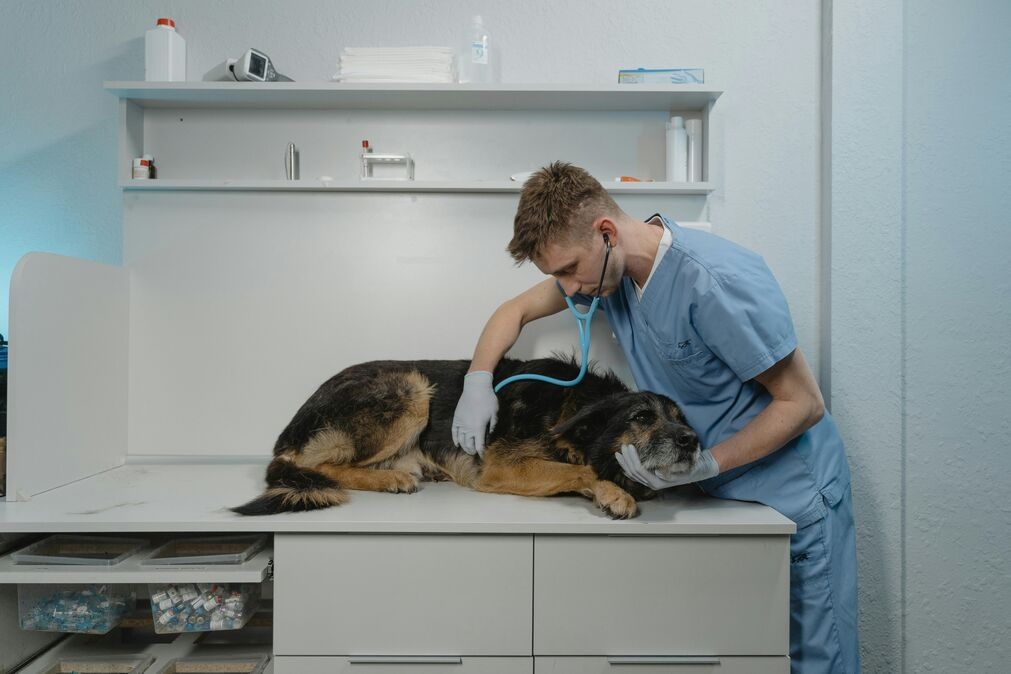
Emergencies with your pets can happen when you least expect it. In the U.S., around 1 in 4 pets face a medical emergency each year, whether it’s a sudden health issue or an encounter with a wild animal. Knowing what to do can really help. Imagine how a moment of panic can turn into a calm response if you’re ready. It’s important to know key life saving actions to take during a pet emergency, so you can handle any situation that comes up. Let’s get started!
Recognize the Signs of Distress
When an emergency strikes, knowing the signs of distress in your pet is essential. Signs can vary but often include excessive panting, vomiting, unresponsiveness, or abnormal behavior. If you notice your pet acting strangely, trust your instincts. Your pet can’t tell you when something’s wrong, so it’s up to you to observe and act quickly. Always keep a watchful eye on any sudden changes in your pet’s behavior.
Evaluate and React with Composure
In a crisis, maintaining composure is crucial for effective decision-making. Instead of succumbing to panic, take a moment to breathe and evaluate the situation. Is your pet facing immediate risk? Can you safely relocate them to a more peaceful space? By staying level-headed, you enhance your ability to make informed choices and deliver the care your pet requires. Thoughtful, decisive actions can greatly impact the outcome.
Contact Your Veterinarian Immediately
Once you’ve assessed the situation, contacting your veterinarian should be your next move. If it’s after hours, many clinics have an emergency line you can call. Explain the situation clearly and follow their instructions carefully. Having your vet’s number saved in your phone can save precious time. Be prepared to describe your pet’s symptoms and any actions you’ve already taken. Prompt professional advice is crucial.
Administer Basic First Aid
In some situations, you might need to administer basic first aid before reaching professional help. For instance, if your pet is bleeding, apply gentle pressure with a clean cloth to stop the blood flow. If they’re choking, look into their mouth and remove any visible obstructions. Learning basic pet first aid can be invaluable. It equips you with the skills to help your pet during those critical moments before you can get them to a veterinarian.
Know When to Transport to an Animal Emergency Clinic
There are times when immediate transportation to an Animal Emergency Clinic is necessary. If your pet is experiencing severe symptoms like difficulty breathing, seizures, or has been involved in a car accident, don’t wait. Safely transport them to the clinic while keeping them as comfortable as possible. Ensure you know the fastest route to the nearest emergency clinic and have a plan in place. Your prompt action can be lifesaving.
Follow Up and Provide Ongoing Care
After the initial emergency has been dealt with, follow-up care is just as important. Follow your veterinarian’s instructions for any medications, dietary changes, or activity restrictions. Monitor your pet closely for any changes or signs of relapse. Providing a calm and comfortable environment will help your pet recover more quickly. Regular check-ins with your veterinarian ensure that your pet remains on the path to full recovery.
By being prepared and knowing what steps to take, you can make a significant difference in your pet’s health and well-being during an emergency. Your quick and informed actions can save lives and ensure your furry friends get the care they need when they need it most.
Conclusion
Being prepared for an animal emergency is crucial for any pet owner. By understanding the signs of distress, staying calm, and knowing when to act, you can provide the immediate care your pet needs. Remember to always have your veterinarian’s contact information handy and be familiar with basic first aid techniques.
Your ability to respond quickly can significantly impact your pet’s health and recovery. With the appropriate knowledge and tools at your disposal, you can ensure that your beloved companions receive the best care possible during emergencies. Together, we can safeguard our pets and keep them happy and healthy.










